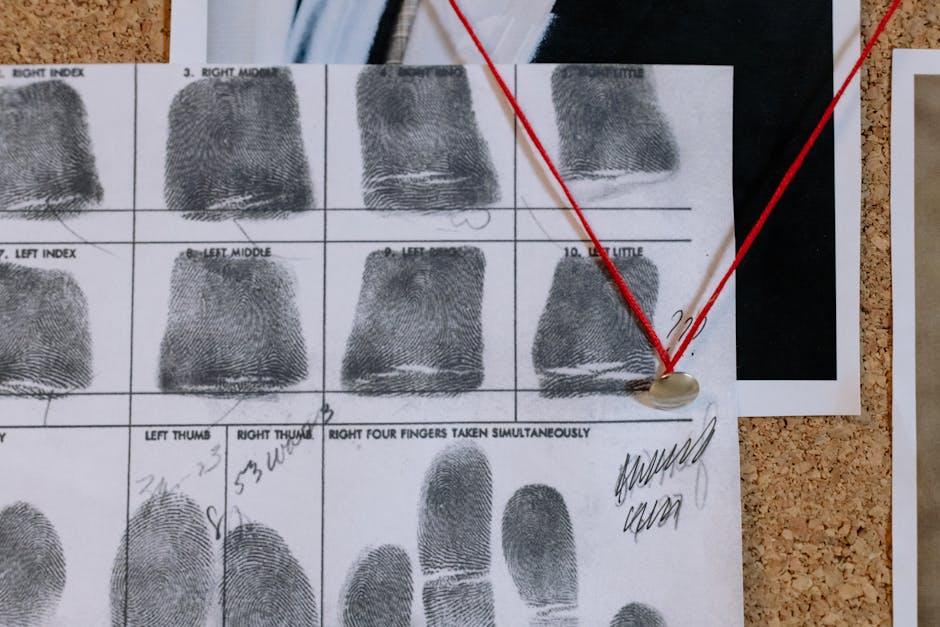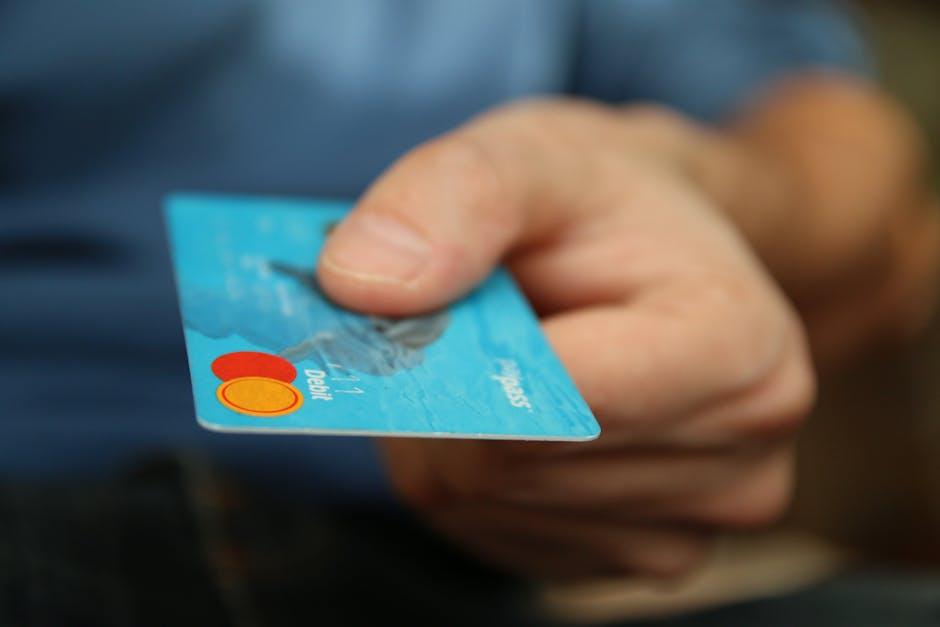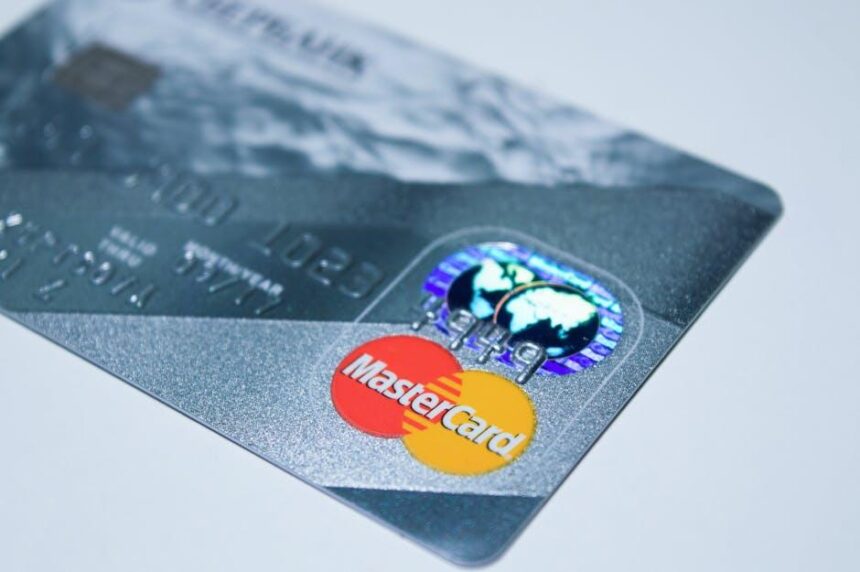In an increasingly digital world, where our personal information is just a click away, the threat of identity theft looms larger than ever. It can happen to anyone, and the aftermath can be overwhelming-hidden charges, damaged credit scores, and a seemingly endless recovery process. However, understanding how to effectively report identity theft is crucial for safeguarding your finances and regaining control. By taking prompt actions and knowing the right steps to take, you can not only protect your assets but also pave the way for a seamless recovery. In this article, we’ll explore essential strategies for reporting identity theft, ensuring that you are equipped to fight back against this insidious crime.
Understanding Identity Theft and Its Impact on Your Finances
Identity theft is a serious crime that can have devastating effects on your finances. When someone steals your personal information-such as your Social Security number, bank account details, or credit card numbers-they can commit fraud in your name. This can lead to serious financial repercussions, making it crucial to understand how identity theft can impact your financial health.
Identity theft can manifest in various ways, each with its unique challenges:
- Credit Fraud: Thieves may open new credit accounts using your identity, leading to debts that you are unaware of. This can severely damage your credit score.
- Bank Fraud: Unauthorized access to your bank accounts can result in money being drained, impacting your savings and day-to-day life.
- Tax Fraud: Identity thieves may file false tax returns in your name to claim refunds, complicating your financial records with the IRS.
- Loan Fraud: Thieves may secure loans under your name, leaving you responsible for repayments and litigation.
The financial fallout from identity theft can be extensive. Here are some key impacts you might face:
| Impact | Description |
|---|---|
| Credit Score Damage | Fraudulent accounts can lower your credit score, making it difficult to secure loans or mortgages. |
| Financial Liabilities | You could be held liable for debts incurred by the thief, leading to potential garnishments and legal troubles. |
| Emotional Distress | The stress of dealing with identity theft can lead to mental health challenges, adding to financial strain. |
| Long-Term Recovery Costs | Restoring your identity can require significant time and money, including legal fees and loss of income during recovery. |
To protect yourself from identity theft, consider these proactive measures:
- Regularly check your credit reports from the three major credit bureaus: Experian, TransUnion, and Equifax.
- Set up alerts with your bank for any suspicious activity on your accounts.
- Consider placing a credit freeze or fraud alert if you suspect your information has been compromised.
- Utilize identity theft protection services that monitor your personal information and help in case of theft.
Understanding the risks associated with identity theft and staying vigilant is essential for safeguarding your finances. By taking proactive steps and knowing how to report any incidents, you can mitigate the impact of identity theft and protect your financial future.

Identifying the Signs of Identity Theft Early
Being vigilant is crucial in safeguarding your financial health and personal information. can save you considerable stress and financial loss. Awareness plays a significant role in this battle, and recognizing the early warning signs is the first step toward protection.
- Unfamiliar Transactions: Regularly review your bank and credit card statements for charges you don’t recognize. Even small amounts can indicate fraudulent activity.
- Credit Report Alerts: Monitor your credit report closely. If you notice accounts you didn’t open or inquiries from lenders you haven’t contacted, investigate immediately.
- Missing Mail: If bills, bank statements, or other important documents don’t arrive on time, it may signal that someone has changed your billing address.
- Unexpected Denials for Credit: Being denied for a loan or credit card unexpectedly can be a sign that your identity has been compromised.
- Unfamiliar Collections Calls: Receiving calls from debt collectors about debts you didn’t incur should raise immediate red flags.
- Changes in Account Details: If your online banking login fails or you notice changes in your email or password you didn’t make, act quickly.
- Inaccurate Personal Information: Check if your personal details, such as your Social Security number or home address, have changed without your knowledge.
- Unusual Tax Notices: If you receive tax documents that don’t match your records or are notified about tax filings made under your name, investigate further. This could be an indication of tax-related identity theft.
| Date of Observation | Sign of Identity Theft | Action to Take |
|---|---|---|
| Within the last month | Unfamiliar transactions on bank statement | Contact your bank immediately and dispute the charges. |
| Last week | Credit report alerts for unknown accounts | Request a credit freeze and investigate the accounts. |
| Last billing cycle | Missing mail or bills | Check with your postal service and notify your creditors. |
| Current week | Collections call for unknown debt | Request verification and report the issue to the FTC. |
By staying alert to these early warning signs, you can take swift action to protect your identity. If you notice any of these indicators, it’s crucial to act quickly. Aim to report identity theft incidents to your bank, credit reporting agencies, and the Federal Trade Commission (FTC) without delay to minimize damage and safeguard your finances.

Steps to Report Identity Theft Effectively
If you suspect that you are a victim of identity theft, acting quickly is essential to minimize potential damage. Here are the crucial :
- Gather Documentation: Start by collecting all relevant documents. This includes bank statements, credit card statements, and any suspicious correspondence. Keep a record of your personal details and the details of the theft.
- Place a Fraud Alert: Contact one of the three major credit bureaus-Experian, TransUnion, or Equifax-to request a fraud alert on your credit report. This makes it harder for identity thieves to open accounts in your name. The bureau you contact will notify the other two.
- Check Your Credit Reports: Obtain free copies of your credit reports at AnnualCreditReport.com. Review them carefully for any unfamiliar accounts or inquiries.
- Report to the Federal Trade Commission (FTC): Visit IdentityTheft.gov or call 1-877-438-4338 to report the identity theft. The FTC will create a personalized recovery plan tailored to your situation.
- File a Police Report: Visit your local police department to file a report. Bring your FTC report and any supporting documents. Having a police report can help you dispute fraudulent charges and incorrect information on your credit report.
- Notify Your Financial Institutions: Contact your bank, credit card companies, and other financial institutions to report the theft. They can help you secure your accounts and mitigate further losses.
- Monitor Your Accounts: Regularly check your bank and credit accounts for unusual activity. Consider enrolling in a credit monitoring service to stay informed about changes to your credit score.
- Consider Identity Theft Protection: Explore identity theft protection services that can monitor your personal information and alert you of any suspicious activity.
By following these steps diligently, you can protect yourself from the long-term repercussions of identity theft and restore your financial health.

Preventative Measures to Safeguard Your Financial Information
Protecting your financial information is crucial in today’s digital age. Here are some effective preventative measures you can take to safeguard your sensitive data:
- Use Strong Passwords: Create unique passwords for each financial account. A strong password typically contains a mix of letters, numbers, and symbols, and is at least 12 characters long.
- Enable Two-Factor Authentication (2FA): This adds an extra layer of security. Even if someone obtains your password, they would still need access to your second factor, like a text message or authentication app.
- Monitor Your Financial Statements: Regularly check your bank and credit card statements for unauthorized transactions. Early detection can help mitigate potential losses.
- Set Up Credit Monitoring: Many services can alert you to changes in your credit report. For a low-cost option, consider services offered by companies like Equifax or TransUnion [3].
- Shred Important Documents: Before disposing of financial records or personal information, use a shredder to protect against dumpster diving and identity theft.
- Be Cautious with Personal Information: Be vigilant about the information you share online or over the phone. Always verify the identity of anyone requesting sensitive data.
- Secure Your Devices: Utilize antivirus software, enable firewalls, and keep your operating system updated to protect against malware and unauthorized access.
Additionally, familiarize yourself with the signs of identity theft, such as unfamiliar accounts on your credit report or unexpected bills. This knowledge can empower you to act swiftly if you suspect any unauthorized use of your information [1].
| Action Item | Frequency |
|---|---|
| Change Passwords | Every 3-6 months |
| Monitor Bank Statements | Monthly |
| Check Credit Report | Annually (or more often with monitoring) |
| Update Security Software | Regularly (as updates are available) |
By implementing these strategies, you can significantly reduce your risk of identity theft and ensure that your financial information remains secure. Stay proactive, and don’t hesitate to reach out to your financial institution if you notice anything suspicious.

Concluding Remarks
In a world where identity theft is an ever-growing threat, safeguarding your finances requires vigilance and prompt action. By understanding the correct procedures for reporting identity theft, you empower yourself to reclaim control over your financial identity. Remember, each step you take-from documenting incidents to notifying authorities-brings you closer to protection and peace of mind. Stay informed, act swiftly, and don’t hesitate to seek support when needed. Your financial well-being is worth every effort. Let’s ensure that your personal information remains just that-personal.














